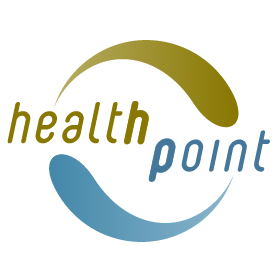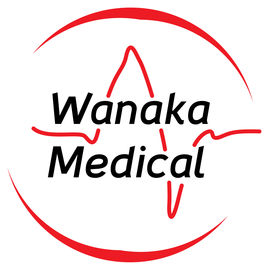Central Lakes > GPs / Accident & Urgent Medical Care > WellSouth Primary Health Network >
Wanaka Medical Centre
General Practice (GP) Service
Today
9:00 AM to 6:00 PM.
Description
Wanaka Medical is a rural general practice providing high quality medical care including accident and emergency services, to the Wanaka Community.
Staff
Our team is made up of 13 GPs (see details below under “General Practitioners”) and:
General Manager: Michael James
Patient Operations Leader: Clare Clarke
Nurse and Quality Leader: Maureen McNeill
Finance and Business Support Leader: Deb Cooper
Nursing Staff:
- Maureen McNeill
- Emma Burnell
- Karthik Sivanathan
- Majken Margetts
- Stephanie Still
- Chris Colbourne
- Ros Nelson
- Pip Ransom
- Alex White
- Ailie Jaine
- Caley Maxwell
- Carol Hannon
- Polly Dickson
- Leigh Cohen
- Jonelle Cochrane
- Bernie Hewson
- Lizzie Burdon
Phlebotomist:
- Holly Davies
Health Care Assistants:
- Marion Griffith
- Ella Glynn
- Isabella Puchner
- Morven Smith
Receptionists/Administrators:
- Clare Clarke
- Leah Wheeler
- Emma Breen
- Anita Thayer
- Katie Ross
- Ella Frires
- Jo Foster
- Monica Lowe
- Georgie Moginie
- Emily Gauja
- Kathleen Fraser
Doctors
-

Dr Catriona Austin
General Practitioner - Vocationally Registered
-
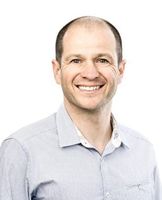
Dr Mark Feeney
General Practitioner - Vocationally Registered
-
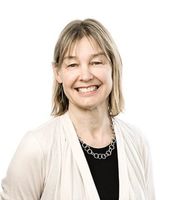
Dr Linda Garrett
General Practitioner - Vocationally Registered
-

Dr Chloe Horner
General Practitioner
-
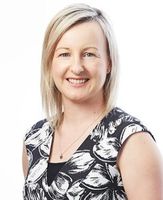
Dr Charlotte Kevern
General Practitioner - Vocationally Registered
-
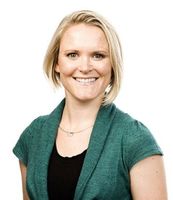
Dr Jenny Maybin
General Practitioner - Vocationally Registered
-
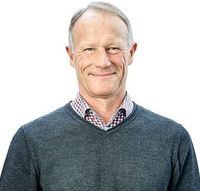
Dr Andrew McLeod
General Practitioner - Vocationally Registered
-
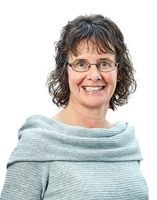
Dr Jo Millis
General Practitioner - Vocationally Registered
-

Dr Kevin Moginie
General Practitioner - Vocationally Registered
-

Dr Julian Pettit
General Practitioner - Vocationally Registered
-

Dr Sophie Sneddon
General Practitioner
-

Dr Nikki Vadgama
General Practitioner - Vocationally Registered
-

Dr Jonathon Wills
Rural Hospital Medicine Specialist
-
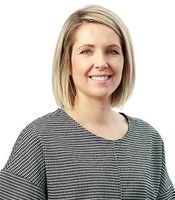
Dr Michele Wills
General Practitioner - Vocationally Registered
-
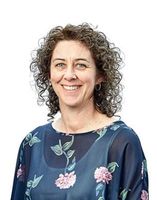
Dr Anna Winter
General Practitioner - Vocationally Registered
How do I access this service?
Make an appointment, Enrolled patients
Enrolling new patients
Fees
Wanaka Medical Fees
|
Monday to Friday 8am – 6pm |
REGISTERED |
NZ VISITORS |
OVERSEAS |
|||
|
Medical |
ACC |
Medical |
ACC |
Medical |
ACC |
|
|
25 years and over |
$64 |
$47 |
$110 |
$79 |
$200 |
$158 |
|
18 – 24 years |
$49 |
$43 |
$110 |
$79 |
$200 |
$158 |
|
14 – 17 years |
$39 |
$28 |
$90 |
$63 |
$163 |
$126 |
|
6 – 13 years |
$0 |
$0 |
$68 |
$0 |
$163 |
$0 |
|
Under 6 years |
$0 |
$0 |
$55 |
$0 |
$152 |
$0 |
|
Weekend & Public Holidays 8am – 6pm |
REGISTERED |
NZ VISITORS |
OVERSEAS |
|||
|
Medical |
ACC |
Medical |
ACC |
Medical |
ACC |
|
|
25 years and over |
$120 |
$80 |
$170 |
$110 |
$260 |
$1560 |
|
18 – 24 years |
$100 |
|||||
|
14 – 17 years |
$80 |
$65 |
$130 |
$80 |
$200 |
$120 |
|
Under 14 years |
$0 |
$0 |
$0 (NZ) $130 (UK) |
$0 |
$180 |
$0 |
A standard medical consult charge is based on a 15 minute appointment.
There may be further charges for longer appointments, further testing, materials, laboratory fees etc.
Hours
9:00 AM to 6:00 PM.
| Mon – Fri | 8:30 AM – 6:00 PM |
|---|---|
| Sat – Sun | 9:00 AM – 6:00 PM |
WEEKEND AND PUBLIC HOLIDAYS:
- Clinics operate between 9am - 12pm and 3pm - 6pm on alternate weekends. See the chart below for more information.
- Clinics alternate between Wanaka Medical and Aspiring Medical Centre (both practices are located at Wanaka Lakes Health Centre)
AFTER HOURS:
After hours calls (from 6pm) will be triaged by a nurse-led service, accessed by calling the practices’ main number or HealthLine on 0800 611 116. Calls will be answered 24/7 and free health advice is available around the clock. If you need to be seen Healthline will tell you what to do and where to go.
From 6pm until 11.00pm, 7 days a week, there will be a clinician on-call in Wanaka available to support patients requiring urgent medical treatment. After 11.00pm, patients who need to be seen by a clinician will be directed by Healthline to the Lakes District Hospital emergency department in Queenstown.
As always, in a medical emergency, please dial 111.
| Weekend Date 2024 | Opening hours |
| 15-16 June | Closed |
| Saturday 22 June Sunday 23 June |
9am to 12pm then 3pm to 6pm - Closed from 12 noon to 3 pm 9am to 12pm then 3pm to 6pm - Closed from 12 noon to 3 pm |
| Matariki Friday 28 June 29-30 June |
Closed Closed |
Public Holidays: Closed Labour Day (28 Oct), Waitangi Day (6 Feb), ANZAC Day (25 Apr), King's Birthday (2 Jun), Matariki (20 Jun). Open Otago Anniversary (24 Mar, 9:00 AM – 6:00 PM), Good Friday (18 Apr, 9:00 AM – 6:00 PM), Easter Sunday (20 Apr), Easter Monday (21 Apr, 9:00 AM – 6:00 PM).
Languages Spoken
English
Services Provided
Immunisation is the safest and most effective way to provide protection for you and your tamariki’s health. For more information view the NZ immunisation schedule.
Immunisation is the safest and most effective way to provide protection for you and your tamariki’s health. For more information view the NZ immunisation schedule.
- Childhood immunisation programme
- Pregnancy vaccinations
- 45 year old vaccinations
- 65 year old vaccinations
- Adult flu vaccine
- Child flu vaccine
- Diphtheria / Tetanus / Pertussis (whooping cough) vaccine
- Human Papillomavirus (HPV) vaccine
- Measles / Mumps / Rubella (MMR) vaccine
- Meningococcal vaccine
- Shingles vaccine
- Travel vaccinations
Immunisation is the safest and most effective way to provide protection for you and your tamariki’s health. For more information view the NZ immunisation schedule.
Getting a COVID-19 vaccine is an important step you can take to protect yourself, your kaumātua and whānau from the effects of the virus. For more information on the COVID-19 vaccines and eligibility visit Ministry of Health - COVID-19 vaccines Covid-19 vaccines can be administered before, after, or at the same time as other national schedule vaccines. When the Nuvaxovid vaccine is given at the same time as the Shingrix shingles vaccine or the Fluad Quad flu vaccine, there may be a chance of experiencing a stronger post-vaccination response and you should discuss this with your vaccinator. WANAKA MEDICAL CLINICS: Wanaka Medical, Wanaka Lakes Health Centre, 23 Cardrona Valley Road, Wanaka Visit Book my Vaccine to make an appointment. We are able to do a flu vaccination alongside your covid booster if required.
Getting a COVID-19 vaccine is an important step you can take to protect yourself, your kaumātua and whānau from the effects of the virus. For more information on the COVID-19 vaccines and eligibility visit Ministry of Health - COVID-19 vaccines Covid-19 vaccines can be administered before, after, or at the same time as other national schedule vaccines. When the Nuvaxovid vaccine is given at the same time as the Shingrix shingles vaccine or the Fluad Quad flu vaccine, there may be a chance of experiencing a stronger post-vaccination response and you should discuss this with your vaccinator. WANAKA MEDICAL CLINICS: Wanaka Medical, Wanaka Lakes Health Centre, 23 Cardrona Valley Road, Wanaka Visit Book my Vaccine to make an appointment. We are able to do a flu vaccination alongside your covid booster if required.
- Pfizer vaccine (12+ years) OR Pfizer booster (16+ years)
- Anyone currently eligible can access
- Make an appointment
Getting a COVID-19 vaccine is an important step you can take to protect yourself, your kaumātua and whānau from the effects of the virus. For more information on the COVID-19 vaccines and eligibility visit Ministry of Health - COVID-19 vaccines
Covid-19 vaccines can be administered before, after, or at the same time as other national schedule vaccines. When the Nuvaxovid vaccine is given at the same time as the Shingrix shingles vaccine or the Fluad Quad flu vaccine, there may be a chance of experiencing a stronger post-vaccination response and you should discuss this with your vaccinator.
WANAKA MEDICAL CLINICS: Wanaka Medical, Wanaka Lakes Health Centre, 23 Cardrona Valley Road, Wanaka
Visit Book my Vaccine to make an appointment.
We are able to do a flu vaccination alongside your covid booster if required.
Your GP's surgery is far more than a place to go when you are feeling unwell and needing a quick cure. The doctor who sees you has gone through an extensive medical training to equip her or him to help children and adults of all ages with a range of physical and emotional difficulties. GPs are at the centre of the healthcare hub and will be aware of services and expertise that are available locally and further-a-field. GPs are also aware of the link that stress and unhappy life events have on physical health so know when to suggest a talking therapy rather than medication.
Your GP's surgery is far more than a place to go when you are feeling unwell and needing a quick cure. The doctor who sees you has gone through an extensive medical training to equip her or him to help children and adults of all ages with a range of physical and emotional difficulties. GPs are at the centre of the healthcare hub and will be aware of services and expertise that are available locally and further-a-field. GPs are also aware of the link that stress and unhappy life events have on physical health so know when to suggest a talking therapy rather than medication.
Your GP's surgery is far more than a place to go when you are feeling unwell and needing a quick cure. The doctor who sees you has gone through an extensive medical training to equip her or him to help children and adults of all ages with a range of physical and emotional difficulties. GPs are at the centre of the healthcare hub and will be aware of services and expertise that are available locally and further-a-field. GPs are also aware of the link that stress and unhappy life events have on physical health so know when to suggest a talking therapy rather than medication.
Primary care practices offer a range of services and are able to deal with most minor accident care. If they are not able to deal with an injury they will refer on to the appropriate service.
Primary care practices offer a range of services and are able to deal with most minor accident care. If they are not able to deal with an injury they will refer on to the appropriate service.
Primary care practices offer a range of services and are able to deal with most minor accident care. If they are not able to deal with an injury they will refer on to the appropriate service.
A patient portal is a secure online tool provided by GP practices that can allow convenient access to your health information as well as interaction with the practice e.g. booking appointments and requesting repeat prescriptions.
A patient portal is a secure online tool provided by GP practices that can allow convenient access to your health information as well as interaction with the practice e.g. booking appointments and requesting repeat prescriptions.
A patient portal is a secure online tool provided by GP practices that can allow convenient access to your health information as well as interaction with the practice e.g. booking appointments and requesting repeat prescriptions.
Minor surgery is commonly provided in primary care practices, providing fast, competent removal and biopsies of skin lesions. Other services include cosmetic work such as removal of benign moles and skin tags. Ingrown toenail surgery is also commonly provided. These conditions do not need to be referred to a hospital, perhaps saving you a long wait or a cancelled appointment when a more serious case takes priority.
Minor surgery is commonly provided in primary care practices, providing fast, competent removal and biopsies of skin lesions. Other services include cosmetic work such as removal of benign moles and skin tags. Ingrown toenail surgery is also commonly provided. These conditions do not need to be referred to a hospital, perhaps saving you a long wait or a cancelled appointment when a more serious case takes priority.
Minor surgery is commonly provided in primary care practices, providing fast, competent removal and biopsies of skin lesions. Other services include cosmetic work such as removal of benign moles and skin tags. Ingrown toenail surgery is also commonly provided.
These conditions do not need to be referred to a hospital, perhaps saving you a long wait or a cancelled appointment when a more serious case takes priority.
Each GP surgery or primary care practice will have its own procedure for repeat prescribing but the following rules are common to most, if not all. Patients who are well-known to the practice who have a stable condition like asthma, hypertension or diabetes could be allowed to get a repeat prescription for up to six months. Repeat prescriptions are never given to patients who are not known to the practice and there is probably a blanket ban on repeats for narcotics and other drugs that could be misused as doctors are expected to monitor these drugs carefully.
Each GP surgery or primary care practice will have its own procedure for repeat prescribing but the following rules are common to most, if not all. Patients who are well-known to the practice who have a stable condition like asthma, hypertension or diabetes could be allowed to get a repeat prescription for up to six months. Repeat prescriptions are never given to patients who are not known to the practice and there is probably a blanket ban on repeats for narcotics and other drugs that could be misused as doctors are expected to monitor these drugs carefully.
Each GP surgery or primary care practice will have its own procedure for repeat prescribing but the following rules are common to most, if not all. Patients who are well-known to the practice who have a stable condition like asthma, hypertension or diabetes could be allowed to get a repeat prescription for up to six months. Repeat prescriptions are never given to patients who are not known to the practice and there is probably a blanket ban on repeats for narcotics and other drugs that could be misused as doctors are expected to monitor these drugs carefully.
Sometimes your doctor needs to take a sample of blood or urine either to discover what is wrong with you or to measure something in your blood so that the right medication is given to you. These tests could be anything from blood sugar to a full blood count or a sample of tissue to test for cancer. While urine can generally be tested in the surgery, blood and other specimens are usually sent away for testing at a laboratory. Most results come back within 48 hours unless a very rare test is needed which has to go to a specialist lab further away when it might take a little longer.
Sometimes your doctor needs to take a sample of blood or urine either to discover what is wrong with you or to measure something in your blood so that the right medication is given to you. These tests could be anything from blood sugar to a full blood count or a sample of tissue to test for cancer. While urine can generally be tested in the surgery, blood and other specimens are usually sent away for testing at a laboratory. Most results come back within 48 hours unless a very rare test is needed which has to go to a specialist lab further away when it might take a little longer.
Sometimes your doctor needs to take a sample of blood or urine either to discover what is wrong with you or to measure something in your blood so that the right medication is given to you. These tests could be anything from blood sugar to a full blood count or a sample of tissue to test for cancer.
While urine can generally be tested in the surgery, blood and other specimens are usually sent away for testing at a laboratory. Most results come back within 48 hours unless a very rare test is needed which has to go to a specialist lab further away when it might take a little longer.
All women and people with a cervix aged 25 – 69 who have ever had intimate skin-to-skin contact or been sexually active should have regular cervical screening. This includes women who have been immunised against HPV. Together, regular screening and HPV immunisation provide the best protection against cervical cancer. There are now more options for how you have cervical screening done: a simple vaginal swab test for HPV, either done yourself or with help from a healthcare professional a cervical sample taken by a healthcare professional (used to be known as a smear test). Talk with your healthcare provider to decide which option is best for you. If HPV is found, you may need to have a follow-up test or be referred directly for colposcopy. If you’ve not yet had HPV testing, you should be screened 3 years after your last test (or 1 year if immune deficient). Once you have had an HPV test, and providing HPV is not found, your next screening will be in 5 years (or 3 years if immune deficient). For more information: Cervical screening | Time to Screen - National Screening Unit
All women and people with a cervix aged 25 – 69 who have ever had intimate skin-to-skin contact or been sexually active should have regular cervical screening. This includes women who have been immunised against HPV. Together, regular screening and HPV immunisation provide the best protection against cervical cancer. There are now more options for how you have cervical screening done: a simple vaginal swab test for HPV, either done yourself or with help from a healthcare professional a cervical sample taken by a healthcare professional (used to be known as a smear test). Talk with your healthcare provider to decide which option is best for you. If HPV is found, you may need to have a follow-up test or be referred directly for colposcopy. If you’ve not yet had HPV testing, you should be screened 3 years after your last test (or 1 year if immune deficient). Once you have had an HPV test, and providing HPV is not found, your next screening will be in 5 years (or 3 years if immune deficient). For more information: Cervical screening | Time to Screen - National Screening Unit
All women and people with a cervix aged 25 – 69 who have ever had intimate skin-to-skin contact or been sexually active should have regular cervical screening. This includes women who have been immunised against HPV. Together, regular screening and HPV immunisation provide the best protection against cervical cancer.
There are now more options for how you have cervical screening done:
- a simple vaginal swab test for HPV, either done yourself or with help from a healthcare professional
- a cervical sample taken by a healthcare professional (used to be known as a smear test).
Talk with your healthcare provider to decide which option is best for you.
If HPV is found, you may need to have a follow-up test or be referred directly for colposcopy.
If you’ve not yet had HPV testing, you should be screened 3 years after your last test (or 1 year if immune deficient). Once you have had an HPV test, and providing HPV is not found, your next screening will be in 5 years (or 3 years if immune deficient).
For more information: Cervical screening | Time to Screen - National Screening Unit
Another service offered to you at your GP surgery (primary care practice) is advice and immunisation before you go to another country. While you are likely to have the immunisations needed to live in New Zealand, there may be other injections you need to protect yourself before going for example to Africa or South America. In some places you will need protection from rabies or malaria. Yellow fever vaccinations are only available at approved centres; please click here to view the centres in New Zealand. Your doctor will be able to tell you what diseases you will need to be protected from in any named country and advise you on other medical matters.
Another service offered to you at your GP surgery (primary care practice) is advice and immunisation before you go to another country. While you are likely to have the immunisations needed to live in New Zealand, there may be other injections you need to protect yourself before going for example to Africa or South America. In some places you will need protection from rabies or malaria. Yellow fever vaccinations are only available at approved centres; please click here to view the centres in New Zealand. Your doctor will be able to tell you what diseases you will need to be protected from in any named country and advise you on other medical matters.
Another service offered to you at your GP surgery (primary care practice) is advice and immunisation before you go to another country. While you are likely to have the immunisations needed to live in New Zealand, there may be other injections you need to protect yourself before going for example to Africa or South America. In some places you will need protection from rabies or malaria. Yellow fever vaccinations are only available at approved centres; please click here to view the centres in New Zealand. Your doctor will be able to tell you what diseases you will need to be protected from in any named country and advise you on other medical matters.
An ECG is a recording of your heart's electrical activity. Electrode patches are attached to your skin to measure the electrical impulses given off by your heart. The result is a trace that can be read by a doctor. It can give information of previous heart attacks or problems with the heart rhythm.
An ECG is a recording of your heart's electrical activity. Electrode patches are attached to your skin to measure the electrical impulses given off by your heart. The result is a trace that can be read by a doctor. It can give information of previous heart attacks or problems with the heart rhythm.
An ECG is a recording of your heart's electrical activity. Electrode patches are attached to your skin to measure the electrical impulses given off by your heart. The result is a trace that can be read by a doctor. It can give information of previous heart attacks or problems with the heart rhythm.
Liquid nitrogen is a fast, effective treatment provided in many practices to treat viral warts, sun damaged skin, skin tags and many benign cosmetic lesions. It comes in a container with a nozzle and is usually applied by swab or spray. Often one treatment is all that is needed but sometimes it may need repeating after two weeks. Because it cannot be stored for too long, you will often find that your GP will treat a number of patients one after the other. For more information click here.
Liquid nitrogen is a fast, effective treatment provided in many practices to treat viral warts, sun damaged skin, skin tags and many benign cosmetic lesions. It comes in a container with a nozzle and is usually applied by swab or spray. Often one treatment is all that is needed but sometimes it may need repeating after two weeks. Because it cannot be stored for too long, you will often find that your GP will treat a number of patients one after the other. For more information click here.
Liquid nitrogen is a fast, effective treatment provided in many practices to treat viral warts, sun damaged skin, skin tags and many benign cosmetic lesions. It comes in a container with a nozzle and is usually applied by swab or spray. Often one treatment is all that is needed but sometimes it may need repeating after two weeks.
Because it cannot be stored for too long, you will often find that your GP will treat a number of patients one after the other.
For more information click here.
LARC methods are very effective at preventing unplanned pregnancy and are “fit and forget” forms of contraception – you don’t need to remember them every day or every month. LARC methods: Intrauterine Contraceptive Devices (IUCD or IUD) are inserted through the cervix into a woman’s uterus. IUCDs may be either hormonal (Mirena® or Jaydess® ) or non-hormonal (copper IUCD). Jadelle® is a hormone-releasing implant that is inserted just under the skin of the upper arm. Depending on the type of device, it will need to be changed after between three and ten years. Read more about LARC methods here
LARC methods are very effective at preventing unplanned pregnancy and are “fit and forget” forms of contraception – you don’t need to remember them every day or every month. LARC methods: Intrauterine Contraceptive Devices (IUCD or IUD) are inserted through the cervix into a woman’s uterus. IUCDs may be either hormonal (Mirena® or Jaydess® ) or non-hormonal (copper IUCD). Jadelle® is a hormone-releasing implant that is inserted just under the skin of the upper arm. Depending on the type of device, it will need to be changed after between three and ten years. Read more about LARC methods here
- Implant (Jadelle) inserts
- IUD inserts
- Implant (Jadelle) removal
- IUD removals
- Free or subsidised contraception services (enquire for eligibility and details)
LARC methods are very effective at preventing unplanned pregnancy and are “fit and forget” forms of contraception – you don’t need to remember them every day or every month. LARC methods:
- Intrauterine Contraceptive Devices (IUCD or IUD) are inserted through the cervix into a woman’s uterus. IUCDs may be either hormonal (Mirena® or Jaydess® ) or non-hormonal (copper IUCD).
- Jadelle® is a hormone-releasing implant that is inserted just under the skin of the upper arm.
Depending on the type of device, it will need to be changed after between three and ten years.
Read more about LARC methods here
Spirometry is a tool that measures how effectively your lungs are working. It is able to show how much air lungs are able to hold (their volume) and how much air can be breathed in and out (inhaled and exhaled) which is called flow. This tool is used to assess damage caused by conditions like COPD (chronic obstructive pulmonary disease – a group that includes bronchitis and emphysema), pulmonary fibrosis, cystic fibrosis and asthma. Results are shown on a graph called a pneumotachograph. For more information click on the following link http://en.wikipedia.org/wiki/Spirometry
Spirometry is a tool that measures how effectively your lungs are working. It is able to show how much air lungs are able to hold (their volume) and how much air can be breathed in and out (inhaled and exhaled) which is called flow. This tool is used to assess damage caused by conditions like COPD (chronic obstructive pulmonary disease – a group that includes bronchitis and emphysema), pulmonary fibrosis, cystic fibrosis and asthma. Results are shown on a graph called a pneumotachograph. For more information click on the following link http://en.wikipedia.org/wiki/Spirometry
Spirometry is a tool that measures how effectively your lungs are working. It is able to show how much air lungs are able to hold (their volume) and how much air can be breathed in and out (inhaled and exhaled) which is called flow. This tool is used to assess damage caused by conditions like COPD (chronic obstructive pulmonary disease – a group that includes bronchitis and emphysema), pulmonary fibrosis, cystic fibrosis and asthma. Results are shown on a graph called a pneumotachograph.
For more information click on the following link http://en.wikipedia.org/wiki/Spirometry
All New Zealand children are entitled to 11 free health checks from birth to three years. The checks aim to ensure that children are growing and developing as well as possible. Included in the checks are clinical assessment, health education and family/whanau support. Baby checks are at birth and then at 24 hours, five days and around 2-4 weeks. Babies are weighed and measured to ensure that they are developing correctly. These sessions provide a great opportunity for parents to ask questions from an expert and have any problem addressed; difficulties with breastfeeding or sleep for example. They can also be used to discuss immunisations and vaccinations. These checks will be carried out by your lead maternity carer (LMC). Between the ages of 4-6 weeks and three years, there are seven core health checks available, typically these are around 4-6 weeks, 8-10 weeks, 3-4 months, 5-7 months, 9-12 months, 15-18 months and 2-3 years. These checks may be carried out by a Well Child Provider of your choice e.g. Plunket, Maori health provider, community nurse, a general practice team (doctor and practice nurse). Your LMC will be able to give you a list of Well Child Providers in your area. More information about Well Child services is available on the Ministry of Health website.
All New Zealand children are entitled to 11 free health checks from birth to three years. The checks aim to ensure that children are growing and developing as well as possible. Included in the checks are clinical assessment, health education and family/whanau support. Baby checks are at birth and then at 24 hours, five days and around 2-4 weeks. Babies are weighed and measured to ensure that they are developing correctly. These sessions provide a great opportunity for parents to ask questions from an expert and have any problem addressed; difficulties with breastfeeding or sleep for example. They can also be used to discuss immunisations and vaccinations. These checks will be carried out by your lead maternity carer (LMC). Between the ages of 4-6 weeks and three years, there are seven core health checks available, typically these are around 4-6 weeks, 8-10 weeks, 3-4 months, 5-7 months, 9-12 months, 15-18 months and 2-3 years. These checks may be carried out by a Well Child Provider of your choice e.g. Plunket, Maori health provider, community nurse, a general practice team (doctor and practice nurse). Your LMC will be able to give you a list of Well Child Providers in your area. More information about Well Child services is available on the Ministry of Health website.
All New Zealand children are entitled to 11 free health checks from birth to three years. The checks aim to ensure that children are growing and developing as well as possible. Included in the checks are clinical assessment, health education and family/whānau support.
Baby checks are at birth and then at 24 hours, five days and around 2-4 weeks. Babies are weighed and measured to ensure that they are developing correctly. These sessions provide a great opportunity for parents to ask questions from an expert and have any problem addressed; difficulties with breastfeeding or sleep for example. They can also be used to discuss immunisations and vaccinations. These checks will be carried out by your lead maternity carer (LMC).
Between the ages of 4-6 weeks and three years, there are seven core health checks available, typically these are around 4-6 weeks, 8-10 weeks, 3-4 months, 5-7 months, 9-12 months, 15-18 months and 2-3 years. These checks may be carried out by a Well Child Provider of your choice e.g. Plunket, Māori health provider, community nurse, a general practice team (doctor and practice nurse). Your LMC will be able to give you a list of Well Child Providers in your area.
More information about Well Child services is available on the Ministry of Health website.
Our GP practice has team members who work alongside your doctor and nurses to provide you with a range of mental wellbeing supports and tools. These team members may include Health Improvement Practitioners (HIPs), Health Coaches and Support Workers. View the following link for more information about wellbeing support in general practice and the national Access & Choice programme.
Our GP practice has team members who work alongside your doctor and nurses to provide you with a range of mental wellbeing supports and tools. These team members may include Health Improvement Practitioners (HIPs), Health Coaches and Support Workers. View the following link for more information about wellbeing support in general practice and the national Access & Choice programme.
Our GP practice has team members who work alongside your doctor and nurses to provide you with a range of mental wellbeing supports and tools. These team members may include Health Improvement Practitioners (HIPs), Health Coaches and Support Workers.
View the following link for more information about wellbeing support in general practice and the national Access & Choice programme.
Contraception (birth control), Menopause, Sexually transmitted infection checks, Male sexual health, Pregnancy testing
Contraception (birth control), Menopause, Sexually transmitted infection checks, Male sexual health, Pregnancy testing
- Contraception (birth control)
- Menopause
- Sexually transmitted infection checks
- Male sexual health
- Pregnancy testing
Special Assistance Support (COVID-19 Vaccination)
Special Assistance Support (COVID-19 Vaccination)
- Wheelchair access
Online Booking URL
Website
Covid-19 vaccination booking URL
Contact Details
9:00 AM to 6:00 PM.
-
Phone
(03) 443 0710
Healthlink EDI
wanaka
Email
Website
23 Cardrona Valley Road
Wanaka
OTA 9305
Street Address
23 Cardrona Valley Road
Wanaka
OTA 9305
Postal Address
Wanaka Lakes Health Centre
23 Cardrona Valley Road
Wanaka 9305
Was this page helpful?
This page was last updated at 11:20AM on June 25, 2024. This information is reviewed and edited by Wanaka Medical Centre.
